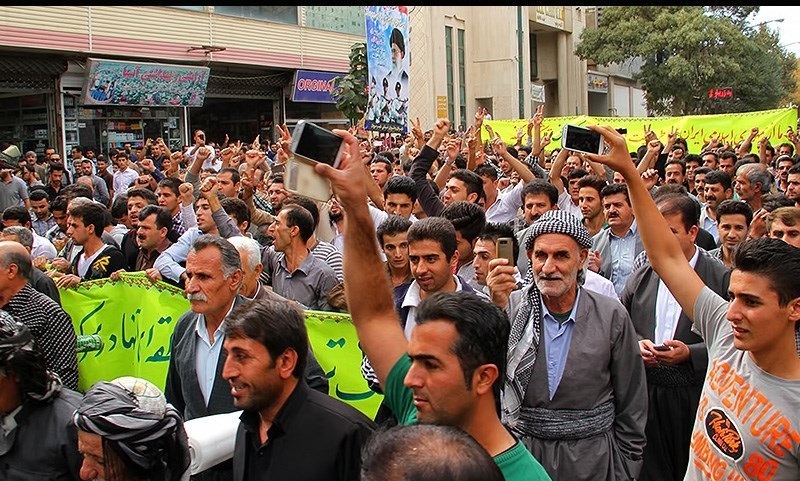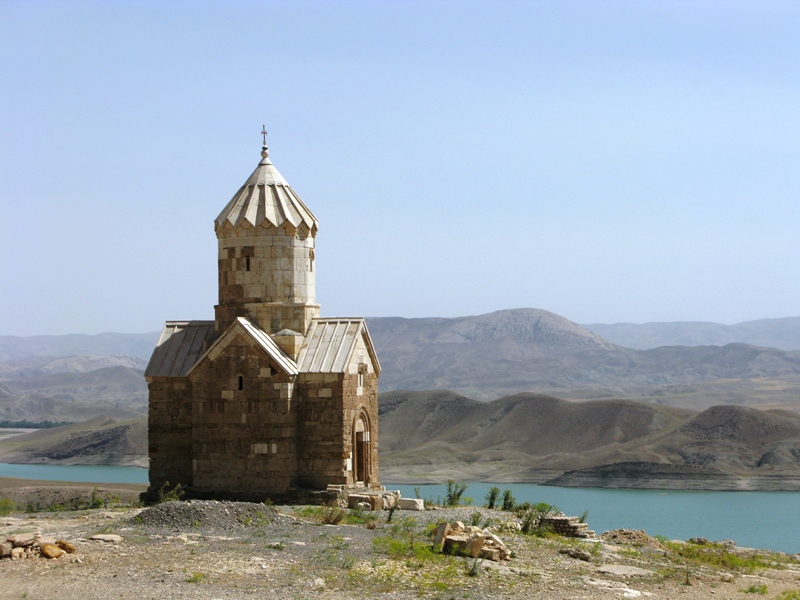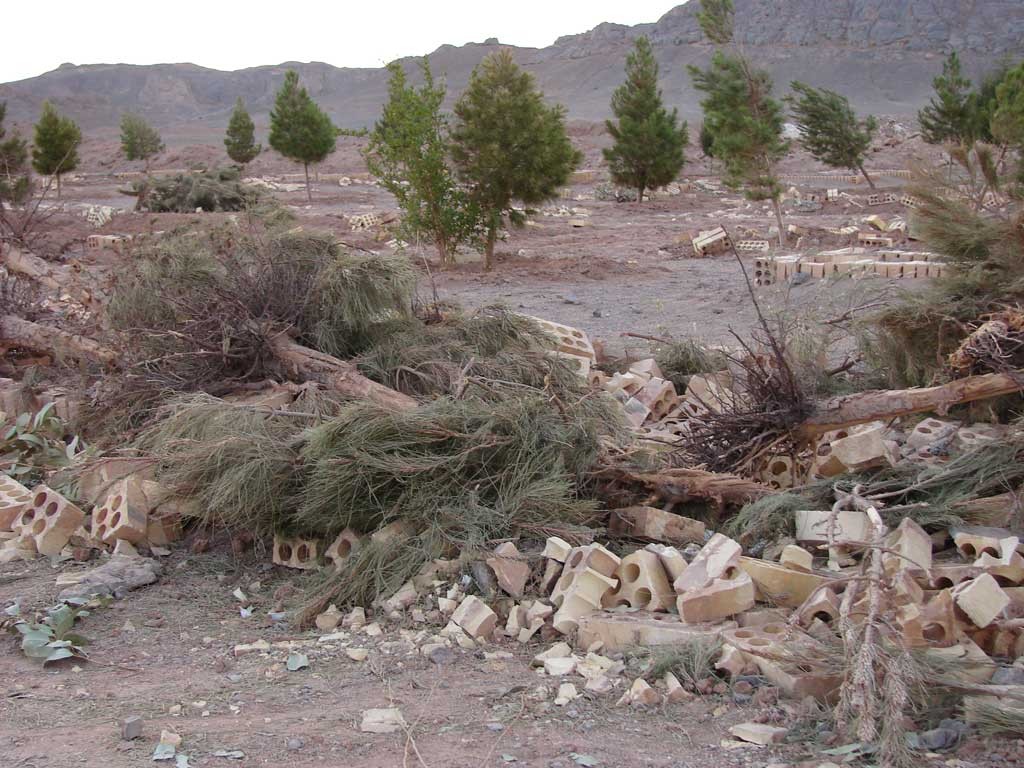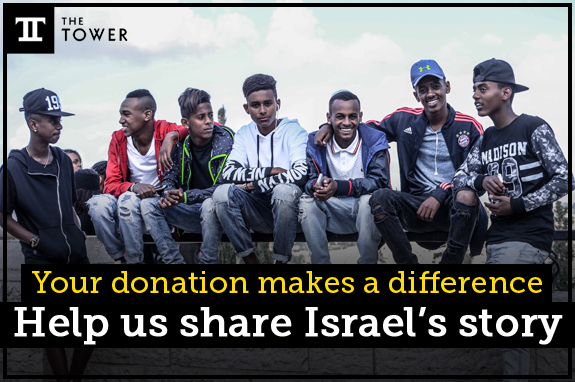Christians, Jews, Baha’is, and Zoroastrians continue to be brutally oppressed in the Islamic Republic.
Much has been written in the Western press about the rising reformist movement in Iran since Hassan Rouhani took over as president from the country’s former firebrand-in-chief Mahmoud Ahmadinejad. Unfortunately, this belief in the rise of “moderate” forces within the Islamic regime is an illusion. The Iranian regime remains as tyrannical as ever.
This is proved not only by Iran’s complicity in war crimes in Syria, its use of terrorism across the Middle East and beyond, and its fueling of sectarian hatred to serve its expansionist policies. It is also shown in its brutal treatment of religious and ethnic minorities.
Indeed, Rouhani’s rise to power has changed nothing in this regard. In fact, the situation for minorities in Iran has steadily deteriorated under his leadership. Persecution, violence, and outright murder have only gotten worse under his tenure. This brutality is the true face of Iran’s ostensibly “moderate” regime.
With a population of just over 80 million, Iran is approximately 99 percent Muslim—90 percent Shi’a and the rest Sunni. Between two to five million people are thought to practice Sufism, a form of Islamic mysticism. The Sunni communities are concentrated along the border with Pakistan and Afghanistan, as well as the Kurdish areas in the West. The Sunni population is mostly Kurdish, Turkmen, Arab, and Baloch. Other religious minority communities constitute about one percent of the population and include Baha’is, Christians, Jews, Zoroastrians, and Yarsanis.
All of these ethnic and religious minorities face systematic harassment, imprisonment, torture, and execution to various degrees. But the inhumane degradation that afflicts millions of people in Iran rarely garners the attention of Western audiences, with the exception of a handful of prominent cases, such as the imprisonment and sham trial of Iranian-American Christian pastor Saeed Abedini. The pastor was arrested in 2012 for organizing secret Christian churches in Iranian homes and was released only after a four-year ordeal and a global campaign on his behalf.
“Nearly five years into Iranian president Rouhani’s term, the human rights situation has worsened for such persecuted minority groups—Kurds, LGBTs, Jews, Christians, Baha’is, and Ahwazi Arabs,” says Benjamin Weinthal, a fellow with the Foundation for Defense of Democracies. “For example, major media outlets largely ignored the execution last year of Hassan Afshar, a gay teenager.”
Since the Islamic Revolution in 1979, the Iranian clerical elite has sought to build a perfect “Islamic state.” As a result, Iran’s entire political, social, and cultural system are based on Islam and Sharia law. The political dominance of Islamic jurists is enshrined in law, making Iran the only country in which a bona fide Islamic theocracy is in absolute control of society. Only three non-Islamic communities—Christians, Zoroastrians, and Jews—are officially recognized by the state, and even those groups face severe persecution and harassment.
Non-Muslims, whether from recognized groups or not, are barred from holding influential positions in state institutions. The president of Iran, by law, must be a Shi’a Muslim. The same holds true for the attorney general and the chief justice of the Supreme Court. In Iran’s parliament, only one seat each is allocated to the Christian, Zoroastrian, and Jewish communities. Other ethnic and religious minorities have no representation at all.
The country’s penal code clearly prioritizes the physical integrity of Muslims over non-Muslims. For example, under Article 207 of the penal code, a non-Muslim who kills a Muslim is sentenced under qisas—the principle that the punishment should be equivalent to the crime committed. If a Muslim kills a non-Muslim, the principle of qisas does not apply, and no punishment is specified under the law.
Moreover, non-Muslims are prohibited from publicly expressing their religious affiliation, and any attempt to convert a Muslim to another religion is punishable by death. The right to choose, change, or leave one’s religion is considered apostasy and carries the death penalty.
Every year, Iran carries out hundreds of executions, many for moharebeh—a loosely-defined crime that can mean anything from “enmity against God” to trying to overthrow the regime. According to an investigation by the UN’s Special Rapporteur for Human Rights in Iran, at least 966 people were put to death in the country in 2015—the highest number since 1989, twice as many as in 2010, and 10 times as many as in 2005.
In addition, at least 250 prisoners of conscience, including Sunni and Sufi Muslims, Baha’is, Christians, Yarsanis, and Zoroastrians remain unlawfully detained, according to the Iran Human Rights Documentation Center database.
The Baha’is, Iran’s largest non-Muslim religious minority, remain among the most persecuted groups in Iran and are branded a heretical political cult by the regime. It is impossible to describe the systematic destruction of their community as anything other than cultural genocide.
“The implications of the lack of recognition are that Baha’is are excluded from the normal rights and privileges of citizenship in Iran,” says Anthony Vance, Director of the U.S. Baha’i Office of Public Affairs. “Schoolchildren are frequently harassed. Cemeteries are desecrated and destroyed. Any public manifestation of faith is criminalized and people who host private Baha’i meetings are subject to harassment or arrest.”
Baha’is are banned from establishing religious institutions and burying their relatives according to their traditions. They are prohibited from seeking higher education or government employment and are excluded from the social pension system. Private sector employers are put under pressure not to hire them, or to dismiss them if they already have hired them. Arbitrary restrictions are placed on Baha’i businesses. Bahai’s are even denied the right to inherit property.
“There are lots of social implications as corollary to the pivotal Baha’i belief (which is belief in the oneness of mankind)—equality of women and men, elimination of all kinds of prejudices, fundamental oneness of religion, harmony of science and religion—these are just a few of the principles of the faith,” explains Mona Mahmoudi, a Baha’i woman who resides in the United States. “These are all anathema to the Islamic government of Iran.”
Worst of all, perhaps, a Baha’i life is worth absolutely nothing in Iran. They cannot demand compensation for crimes committed against them and, by law, Baha’i blood can be spilled with impunity. The existence of the Baha’i World Centre in Haifa, Israel is often used as an excuse by the regime to depict Baha’is as Zionist agents who deserve to be suppressed.
Mahmoudi is the daughter of two prominent members of the Baha’i community who were executed by the regime for their activism within the community. “Both of my parents, Houshang Mahmoudi and Zhinus Mahmoudi, were killed by the Islamic government,” she states. They went after her father first: “My father was one of the nine members of the National Spiritual Assembly of the Baha’is of Iran—the NSA is a democratically elected national governing body of the Baha’is,” she says. The entire NSA was “disappeared” by the regime. Then they came for her mother: “She was one of the nine members of the subsequent NSA that was elected after the disappearance of that previous NSA. She, along with eight other members of the NSA, were executed in December of 1981,” Mahmoudi recalls. “She was 52 at the time of her death.”
More than 200 Baha’i leaders have been put to death and more than 10,000 have been dismissed from the public sector since 1979. Approximately 90 Baha’is are being held in prisons without due process. The prominent “Baha’i Seven,” the community leaders sentenced to 20 years in prison in 2008 on charges of “espionage for Israel,” are still detained.
The accusation of having real or perceived ties to Israel is a powerful tool of oppression in the Islamic Republic and is frequently levelled against the country’s few remaining Jews.
A group of Jewish diamond dealers from Shiraz, the capital of Fars province, spoke to me only on the condition of strict anonymity due to concerns for their safety. “We have a somewhat decent life, but it is very insulated,” they explain. “We have to stay within our community and cannot go to Israel. If we speak publicly, we could be accused of being spies if the government thinks we are doing anything political for Israel.” They practice their faith quietly to avoid attracting undesired attention from authorities.
The Supreme Leader and other high-profile government officials aggressively incite violence against the country’s Jews and spread anti-Semitic propaganda in official statements. The regime denies the Holocaust and regularly calls for the elimination of the state of Israel. State-owned publications publish anti-Semitic cartoons that depict Jews as demonic and malevolent creatures.
During annual al-Quds Day rallies, the Israeli flag is burned and chants of “Death to Israel” fill the streets. The country hosts an annual Holocaust denial cartoon contest that enjoys the support of the regime. The organizers behind the event—Iran’s House of Cartoon, the Owj Media & Cultural Institute, and the Sarcheshmeh Cultural Complex—are directly linked to and funded by the Islamic Revolutionary Guard Corps.
The Christian community in Iran has suffered a similar fate. Churches are branded “Zionist propaganda institutions,” and taking part in services in private homes or unauthorized churches carries a long prison sentence. Despite Christians being protected by the constitution as a recognized minority, Iranian security services regularly raid church services, arrest worshippers, and confiscate religious symbols and literature. Since 2010, approximately 550 Christians have been arbitrarily arrested because of their religious beliefs and activities. Over 90 are currently lingering in prison on trumped-up charges. Human rights organizations have stated that Christian prisoners are subjected to severe beatings, sexual assault, and torture.
Religious minority groups are not alone in suffering discrimination. Minority ethnic groups are often associated with movements seeking autonomy and equality, and are brutally oppressed by the clerical elite as a result.
The Iranian regime does not recognize its Kurdish community as a distinct ethnic group. Their culture is suppressed and their political rights denied. The Kurdish areas in the west of the country are among the most economically underdeveloped regions in Iran. “Living as a Kurd in Iran feels like being a second- or third-class citizen. You never feel you are a normal citizen with equal rights as the Shi’a,” says Poya Kazimi, a Kurdish man from the town of Sardasht.
At least 50,000 Kurds have perished since Ayatollah Khomeini called for a “holy war” against the Kurdish people in the aftermath of the Revolution. By various means, Sunni Kurds, who account for roughly three quarters of the Kurdish population in Iran, are pressured to convert to Shi’a Islam. Many minorities in the country are subjected to similar policies of coerced assimilation.
For example, the Yarsan faith, an ancient religion practiced mostly among Kurds in western Iran, is not recognized by the state and dismissed as a cult. Yarsanis have absolutely no rights under the law.
Kazimi explained how he was forced to flee the country after taking part in an anti-government protest in 2005. “I was in that protest and holding a poster condemning the evil acts of the Iranian regime,” he says. “And less than an hour later police and intelligence services came with pepper spray and guns and beat up protesters.” Many elderly people who could not resist were arrested. “My dad was one of them. He was arrested and tortured for three years. He died in prison.”

Iranian Kurds demonstrated in support of the besieged people of Kobani, October 2014. Photo: Bahman Shahbazi / Tasnim News
Iran often deals with political opponents by unlawfully arresting and executing them. In February 2015, the regime hanged two Kurdish political prisoners, the brothers Ali and Habib Afshari. Four months later, prominent Kurdish activist Mansour Arvand was executed without notice. In August, another Kurdish political prisoner, Sirvan Nashavi, was killed on charges of moharebeh. In September, Behrouz Alkhani was executed despite a pending Supreme Court appeal. The list goes on.
“Dozens of Kurds are on death row,” Kazimi says. “They use cranes to execute them. They die from slow strangulation by hanging—it is the method that applies to all Kurds arrested on false claims by Iranian intelligence.”
The Baloch, another ethnic minority, face similar levels of discrimination. Like the Kurds, the majority of the Baloch community is Sunni. This combination of ethnic and religious differences has led to them being brutally targeted by the regime for being the wrong kind of Muslims. The goal is to eliminate expressions of Baloch identity and culture, and squash their hopes for self-determination. Frequently, Baloch who are politically active are arrested, convicted in unfair judicial proceedings, and executed.
The Iranian regime has also imposed harsh prison sentences on members of Sunni minority groups and prominent reformers in the Shi’a community. “You would think that Iran is a safe haven for Muslims, a nation where no anti-Muslim persecution takes place,” Kazimi says. “But you are wrong! Muslims who do not adhere to the Shi’a interpretation of Islam are met with distrust and disrespect by authorities. They often suffer discrimination, and sometimes much worse.”
The Sufi community suffers severe harassment at the hands of Iranian authorities, especially prominent leaders from the Nematollahi Gonabadi Order. In recent years, Sufi prayer centers have been attacked and destroyed, and arbitrary restrictions have been used to prevent them from maintaining their religious infrastructure.
State-owned media airs programs that stigmatize and demonize Sufis, who are often persecuted in Muslim-majority countries for not being “true” Muslims. Dozens of Sufis have been arrested and sentenced to fines and flogging. In June 2015, Sufi prisoner Abbas Salehian was given 74 lashes for “committing a haram [religiously forbidden] act through advocating Gonabadi Dervish beliefs.”
Clerics who are genuinely committed to moderation and reform—and who, unlike the regime, believe in them as more than a cosmetic exercise—face serve repercussions. A prominent dissident Shi’a cleric, Ayatollah Mohammad Kazemeni Boroujerdi, is a harsh critic of the theocratic regime and an advocate for the separation of religion and government. He has called for free elections under UN supervision. For this, he is currently serving an 11-year prison sentence on charges of “insulting Islam,” and has been banned from performing his clerical duties.
Much of this persecution is taking place under the radar of the international community, which has too readily embraced the sanitized version of Iran sold by President Rouhani since the nuclear détente.
“Rouhani hoodwinked large swathes of Western politicians who wittingly or unwittingly absorbed his pragmatic rhetoric. His actions, however, continued the regime’s war on minorities and women,” Weinthal says.
“Germany’s Social Democratic foreign minister, Sigmar Gabriel, rushed to Iran after the nuclear deal in 2015 to cut significant business deals with the mullah regime,” he adds. “Sadly, Gabriel’s behavior is the norm for Europe; namely, trade deals override any concern with reducing Rouhani’s severe repression of minority groups.”
If we are serious about helping Iran’s suffering minorities that needs to change. “It is almost always more difficult to persecute people if the media shine a spotlight on the persecution,” says Vance. “Even stories published online by local newspapers are noticed around the world since so many people employ search engines for their special areas of interest.”
Iran’s persecuted minorities deserve better than being sacrificed on the altar of lucrative business deals with a regime that remains one of the worst violators of human rights in the world.
![]()







